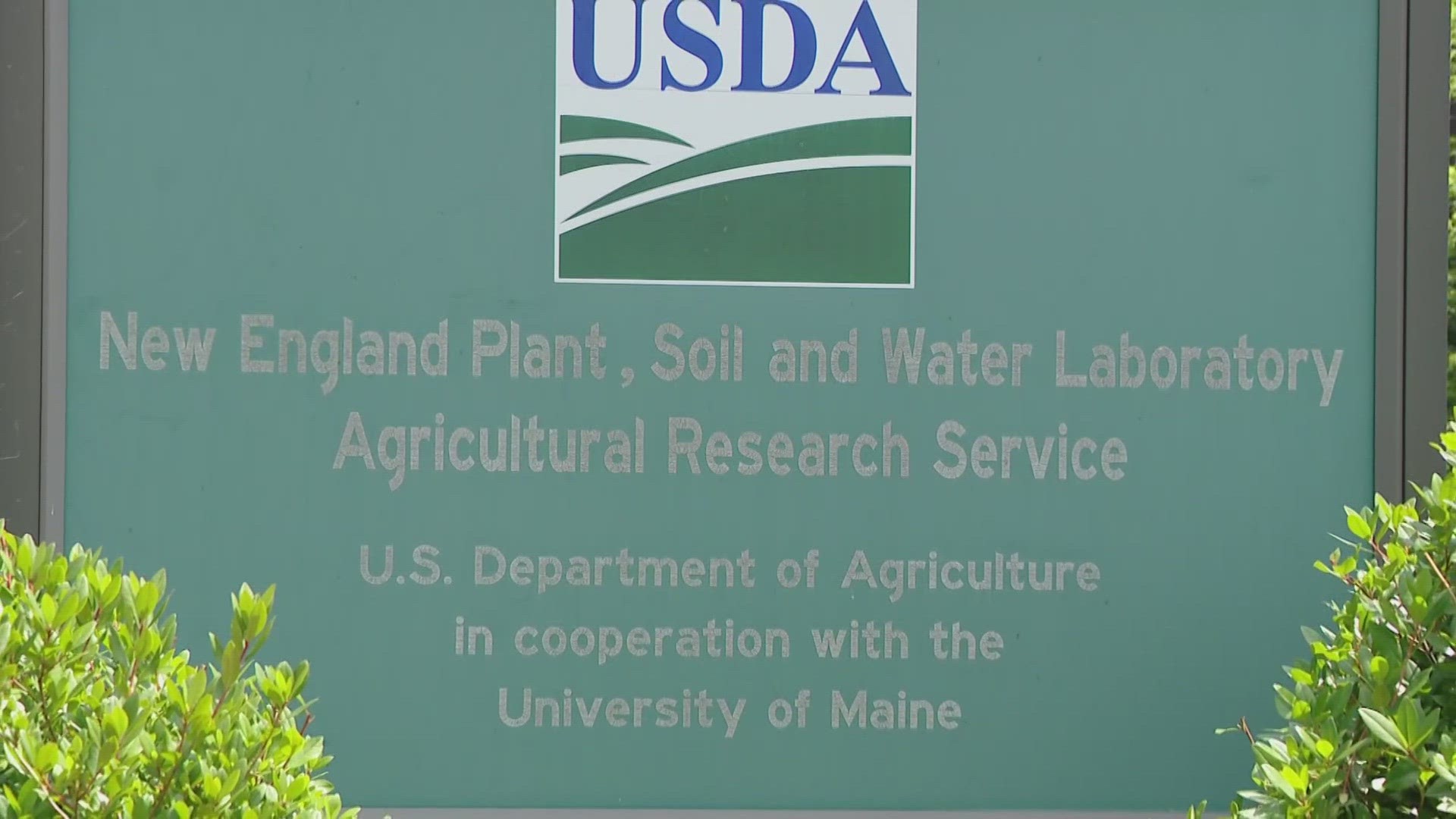ORONO, Maine — Maine leads the nation by enacting some of the strictest laws regarding regulating PFAS chemicals in drinking water and banning the use of biosolids containing the chemicals as fertilizer.
A collaboration between the University of Maine and the US Department of Agriculture could pioneer new technologies and research to mitigate the toxic chemicals that take decades to break down.
A mass spectrometer is currently being used to measure tiny compounds in fish tissues at the USDA's Agriculture Research Service New England Plant, Soil and Water Laboratory on the Unversity of Maine Orono campus.
This equipment could measure PFAS chemicals in plant tissues, soil, and water. It all hinges on the approval of congressional funding — $10 million would go to renovate, expand, and equip existing lab space facilities and hire more staff.
"What will be key is for us to hire a research leader with expertise in PFAS research and a vision of where this program would go in the next ten years," said Brian Peterson, the research leader at the lab.
Another $10 million will be used for research and programming to address contamination from toxic industrial chemicals across agricultural industries.
More than 60 farms across the state have been identified as having unsafe levels of the chemicals in their soil and water. The compounds are found in wastewater sludge spread as fertilizer on Maine farms for decades.
The PFAS Center of Excellence at UMaine would build on research already underway on crops that may be able to grow on contaminated farmland. Corn has already been shown to suck the chemicals out of the soil into the stalk but not the ear.
Jake Ward is the vice president for innovation and economic development at UMaine.
"What are the best ways to remediate it if it can be cleaned, and what plants and crops can grow on it?" Ward explained.
Onur Apul is an environmental engineering professor utilizing a grant from the National Science Foundation to see whether a souped-up version of granular-activated carbons — like the ones found in home water filters — can effectively break down PFAS. He says the first-of-its-kind center would allow Maine to lead amid a contamination crisis.
'We have to throw everything at it so that any resources made available to mitigate PFAS is extremely timely and critical," Apul added. If the House and Senate approve, the funding could be appropriated sometime next year. Meanwhile, researchers and officials expected to hammer out priorities for the new center to better deter PFAS in soil and water and alleviate its impact. For more information on Maine's ongoing investigation into PFAS contamination, go here.

